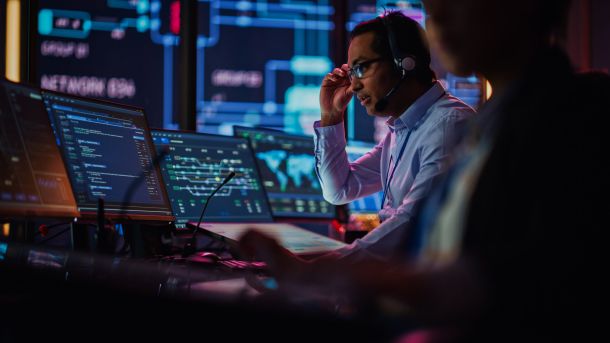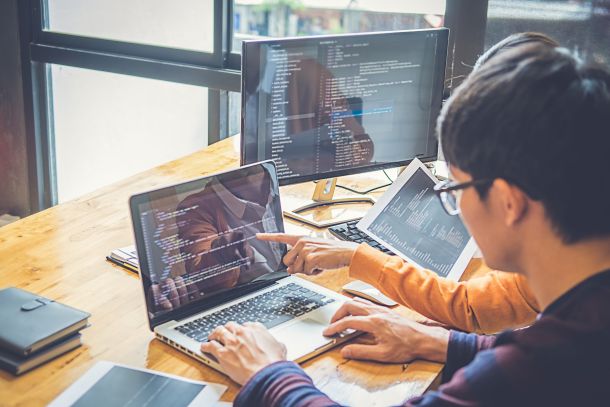Is Artificial Intelligence really stealing our jobs?
For the past few years, we have seen the rapid development of artificial intelligence (AI), which has raised both enthusiasm and concerns. One of the most frequently discussed topics is the impact of AI on the labour market – are robots and algorithms really taking our jobs? In this article, I will try to look at this issue from a slightly different perspective.
Industries and jobs at risk from AI
According to a report by the Polish Economic Institute, some 3.68 million people work in the occupations most affected by artificial intelligence, representing 22% of all employees. There is no doubt that some sectors are already affected by the introduction of AI. The professions most at risk are those that rely on repetitive activities, such as:
- Finance and legal professionals – AI improves data analysis and decision making. Manufacturing and logistics – robots are replacing humans on production lines and algorithms are optimising delivery routes.
- Customer service – chatbots and virtual assistants are becoming more effective at answering customer questions and solving simple problems.
- Data analysis – AI algorithms can analyse vast amounts of data faster and more accurately than a human.
- Accounting and legal – AI tools automate document analysis, report generation or invoice processing.
At the same time, jobs involving simple physical labour, such as agricultural or livestock workers, are less likely to be automated.
Examples of companies replacing humans with AI
There are many examples of multinational companies already using AI to replace humans:
- Amazon uses Kiva robots in its distribution centres to automate order picking.
- JP Morgan is using COIN software to analyse legal documents, reducing the time it takes lawyers from hundreds of hours to seconds.
- McDonald’s is testing automated kiosks and AI-powered voice systems to replace cashiers.
Closer to home, we can also observe such developments. An example is the radio station OFF Radio Krakow, which in October 2024 replaced human presenters with virtual characters created by AI, conducting music programmes and interviews. Although the radio station’s creators themselves explain the replacement of presenters by AI as a social experiment, it is hard to deny that such solutions work and have their supporters as well as opponents.
New roles instead of job losses
Instead of job cuts, the introduction of AI will lead to a transformation of roles and skills. Instead of traditional specialists, we need people who can work with AI, i.e:
- Prompt Engineers – The ability to formulate precise queries to language models will become critical.
- Workflow specialists – We need specialists who can integrate AI tools into existing business processes.
- AI trainers – Humans will still be needed to check the quality of AI work and make final decisions.
This is not the end of work, but a change in its nature. Hard skills will give way to skills related to managing the technology and using it creatively.
A fundamental change in the way we live and work
The changes brought about by AI can be compared to the revolution brought about by computers or the internet. It was once feared that machines would make office workers redundant. In fact, the computer opened the way for new professions such as programmers, graphic designers and IT professionals. The same thing happened when servers moved to the cloud – not only did the technical aspects of work change, but so did the management model and the way we think about infrastructure.
Today, we are witnessing a similar revolution. AI is changing the way we work, but it is also forcing us to adapt to a new reality. AI has eliminated 1.8 million jobs worldwide but created 2.3 million new ones, a net gain of around 500,000 jobs. Those who quickly acquire new skills will be at the forefront of this change, opening doors to opportunities that were previously out of reach.
Summary
Is AI taking away our jobs? Rather not – it changes it. It requires us to adapt and be open to developing new skills. What seems like a threat today could be an opportunity tomorrow. History teaches us that every technological revolution brings challenges, but also significant opportunities. We just need to recognise them and use them appropriately.






















